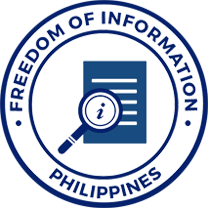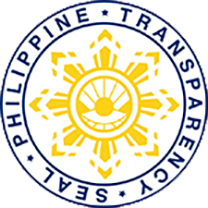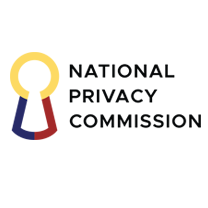The Department of Justice-Office for Competition (OFC) issued today an Advisory to notify consumers of their right to be informed of the details of the mobile or internet services for subscription. It reminded telecommunications companies to be clear and truthful in their advertisements.
"Truth in advertising is an access issue," said Secretary of Justice Leila M. de Lima. "Economic justice requires that those who possess the information duly and timely disclose them," she said.
The Advisory calls on the Department of Trade and Industry (DTI) and the National Telecommunications Commission (NTC) to monitor, enforce and implement sanctions on erring telcos under the Consumer Act and the Public Telecommunications Policy Act.
"Slow and expensive internet needs to be addressed for development to happen and it starts with fair pricing and fair use," said Assistant Secretary Geronimo L. Sy, head of the DOJ-OFC, which was tasked by the Senate Committee on Trade, Commerce and Entrepreneurship to provide the issuance. "Broadband speeds must be stated in the minimum rather than 'up to' with the level of service reliability in the same manner as telcos expect prompt payments," he said.
Previously, the OFC released statements on airlines' obligations to include all fees in the promotional piso fares, clarified that gift certificates have no expiry dates, and reminded banks not to coordinate their increase of ATM fees. It also completed its Report on the Garlic Industry to resolve the price hikes of said prime commodity.
Enclosed: Advisory Opinion No. 01 (Series of 2014).
ADVISORY ON BROADBAND AND MOBILE
INTERNET ADVERTISEMENTS
- INTRODUCTION
This Advisory is issued to guide all subscribers/end-users/ consumers and telecommunication companies in the promotion of broadband and mobile internet services. It also serves as a tool for all regulatory agencies in the enforcement of their respective mandates.
Internet service is mainly offered through fixed broadband or mobile data connection. Fixed broadband internet can be transmitted using either wireline (via DSL, cable, or fiber optic) or wireless (via WiFi router, WLAN, or satellite) network. On the other hand, mobile data connection is a value added feature bundled with the cellular services using 3G or 4G signals. Subscription to these services is promoted in various data plans or packages depending on promised connection speed and data capacity.
Internet service providers (ISPs) promote their services through marketing materials in print, web posts, television and radio broadcasts, as well as outdoor banners and signages. In their advertisements and other marketing materials, the ISPs usually include the phrase "up to xx Mbps" to indicate the maximum connection speed offering for a certain bundle or plan. However, such practice misleads subscribers into believing that their internet connection will be as fast as what was advertised but in fact, may actually experience otherwise.
Thus, ISPs are hereby advised that all marketing materials must comply with specific standards set by law. Also, the public is informed that any misrepresentation in these marketing materials, is violative of their rights as consumers. Advertisements containing false, deceptive or misleading information are considered unfair trade practices which can cause economic injury not only to consumers but to the market as a whole.
- SUMMARY OFTHE LAW
The growing dependence of the public on the internet motivates ISPs to heavily rely on advertisements to promote their services and solicit subscriptions. Beyond cavil, the advertising industry in general is a strong and effective medium in disseminating information to the public. Its extensive reach, however, makes it more susceptible to overstatements and deceptive information, hence, the need for proper screening, monitoring, and scrutiny.
Article XVI, Section 11 (2) of the Constitution clearly provides that "the advertising industry is impressed with public interest, and shall be regulated by law for the protection of consumers and the promotion of the general welfare". It directs the protection of consumers from trade malpractices as well as from substandard or hazardous products and services.
A. The Consumer Act
Pursuant to the provisions of the Constitution, Republic Act No. 7394, otherwise known as the Consumer Act of the Philippines ("Consumer Act" for brevity), was enacted in April 1992 to protect the interests of the consumers, promote their general welfare, and establish standards of conduct for business and industry.
Article 108 of the Consumer Act declares that it is the duty of the State to "protect the consumer from misleading advertisement and fraudulent sales and promotion practices." An advertisement for a product or service is considered false, deceptive or misleading if it does not conform to the provisions of the Consumer Act, or if it bears information or representations that are in themselves false, deceptive or misleading, or rather if it fails to reveal facts that are material to consumers.
Thus, any false, deceptive and misleading advertisement used "for the purpose of inducing or which is likely to induce directly or indirectly the purchase of consumer products or services" is deemed unlawful and subjects the persons responsible to penalties provided in Article 123 (a) of the Act.
Article 110 of the Consumer Act sets out some of the decisive factors in determining whether an advertisement is false, deceptive or misleading, to wit:
(1) the representations made or any combination thereof;
(2) the extent to which the advertisement fails to reveal material facts in the light of such representations; and/or
(3) materials with respect to consequences which may result from the use or application of consumer products or services.
Advertisements and promotional materials on broadband and mobile internet services must NOT therefore present specifics that lead consumers to choices that are based on erroneous facts or representations. While it is understood that print and other audiovisual marketing materials are usually kept direct and concise, material information relevant to the decision-making of the would-be subscribers must be discernable.
Prevalently, telecommunication companies induce potential consumers by showcasing various subscription arrangements – either bundled with gadgets or fixed with specified data usage. In all of these promotions, afford ability or the price component of the service becomes a principal enticement used by ISPs in promoting their prepaid and postpaid internet packages. Nonetheless, there remains relevant information that would significantly influence a consumer's decision to subscribe to a particular plan or bundle, such as:
(1) the minimum speed;
(2) the service reliability; and
(3) the details on usage limits/conditions and additional charges;
The consumers' willingness to subscribe to a higher internet plan increases with faster speed and higher service reliability rate. Basically, consumers are more inclined to buy or patronize a good or service that provides high satisfaction rate with minimal cost. Usage limits/conditions and other additional costs must thus be reflected to avoid confusions as well as protect consumers from unnecessary and hidden billing charges.
Notably, it is a common practice for service providers to specify only the maximum speed for downlink/uplink connections in their advertisements and other promotional materials. This enables ISPs to provide an actual connection speed that is slower than what they advertised. Such practice thus creates confusion among consumers. In reality, subscribers are short-changed because they are not guaranteed fast, consistent and reliable internet service but pay for a quality of service that is below par.
The ISPs also fail to reveal the implementation of Fair Use Policy (FUP) in their advertisements. FUP or data cap is imposed by the companies practically to give end-users equal opportunities to access their services. With FUP, some heavy internet users who have exceeded their data limit will experience slow internet connections. The consumers must be fully informed about this term of use. It follows that non-specification of FUP is an indication of a false, deceptive or misleading advertisement.
B. NTC Memorandum Order No. 07-07-2011
The Public Telecommunications Policy Act mandates the National Telecommunications Commission (NTC) to regulate the business operations of telecommunication companies. Though broadband and mobile internet services remain as value-added services (VAS) which are deregulated, the Commission is nevertheless empowered to promote and protect the welfare of subscribers by ensuring quality and reliable telecommunication services.
In recognition of the growing concerns on this unfair business practice of false, deceptive and misleading advertising, the NTC issued in July 2011 Memorandum Order (MO) No. 07-07-2011 specifically to provide guidelines on minimum speed connections for internet services.
NTC Memorandum Order No. 07-07-2011 highlighted that service providers are promoting subscription deals specifying only the maximum speed of internet connection. In view thereof, the Memorandum Order upholds the fundamental right of the customers/subscribers/users to be informed of the quality of the internet connection service being provided by the ISPs and directs service providers to indicate in their advertisements and other promotional materials as well as in their service agreements not only the service rates of their internet offers but also the minimum connection speed and the service reliability.
It is understood that mobile and broadband internet services use different types of facility in transmitting data. Broadband technology is often faster and more stable than cellular technology. Also, mobile internet is expected to suffer more from erratic signal strength. This notwithstanding, customers/subscribers must be assured of consistent and reliable service. ISPs are thus required by the Memorandum Order to provide a minimum service reliability of 80 percent.
Notably, Rule 1 of said Memorandum Order reads:
xxx
Service reliability is measured over a period of one (I) month and calculated as
(Hours in a day x Days in a month) - (Time internet connection speed is below min.)
Hours in a day x Days in a month
The service offers shall specify the service rates for a minimum broadband/ internet connection speed and the service reliability. For example: a broadband service provider can offer PhP900.00/month for 512 kbps minimum connection speed and 80% service reliability, or PhP1,000.00/month for 512 kbps minimum connection speed and 85% service reliability, or PhP1,000/month for 1 Mbps minimum connection speed and 80% reliability, etc. [Emphasis supplied]
Basically, service reliability measures the percentage capacity rate of the ISP to provide at least its specified minimum internet speed per month. Rule 1 emphasizes that ISPs must provide subscribers with their specified minimum internet connection speed of at least 80% for a given time. For instance, Globe Telecommunications currently offers PhP1099/month for an internet plan with 256 Kbps minimum speed connection and 80% service reliability.
Failure on the part of a broadband service provider to comply with the Memorandum Order authorizes the Commission to file the appropriate administrative case against said broadband service provider. Consumers or end-users are allowed to participate in the monitoring of the compliance by the PTEs of the prescribed standards and of the approved roll-out plans although they cannot interfere with the arbitration and litigation of the complaints filed before the Commission if they are not directly involved.
In addition, the Implementing Rules and Regulations (IRR) of RA 7925 clearly state that "VAS providers shall comply strictly with the service performance and other standards prescribed by the Commission."
Therefore, under the law, service rates, minimum speed, and service reliability are considered material facts significant to current and potential customers when making a choice as to whose services to avail. This means that in the promotion of mobile and broadband internet subscription deals, these three (3) elements must be included as additional information in the marketing materials of the service providers. This ensures the protection of customers/subscribers/end-users and the general public from false, deceptive, or misleading promotional materials and ultimately, promotes general welfare.
III. ADVISORY
From the foregoing discussion, the follo'ing advisory points are indorsed:
1. THE ISPs MUST NOT USE FALSE, DECEPTIVE OR MISLEADING ADVERTISEMENTS IN PROMOTING INTERNET OFFERS.
Attracting customers is the primary objective of an advertisement or a promotional material. Nonetheless, this does not give service providers blanket authority to promote their services. ISPs are required to observe the standards prescribed under the Consumer Act, NTC Memorandum Order 07-07-2011, and other related issuances. Advertisements, flyers, posters and other promotional materials should not propagate any false, fraudulent or misleading representations. Marketing materials should inform the public and not operate as traps to potential customers. Service providers must be responsible for the content and the over-all presentation of their promotional offers to the public.
2. ADVERTISEMENTS MUST FULLY REASONABLE DETAILS ABOUT THE SERVICE BEING OFFERED.
As discussed above, the overall presentation of advertisements and other promotional materials can be catchy and informative at the same time. However, over and above the agenda to induce and boost product sales, these materials should enable consumers to make intelligent decisions. On that account, it is only reasonable for the ISPs to be forthright in providing material details - which include the service rates, minimum connection speed, and service reliability – in their advertisements and other audiovisual materials on internet connection.
Since mobile and broadband internet services differ in their transmission characteristics as well as in signal strength, the consumers should be apprised of the conditions and other essential details of their subscription.
While all the particulars of an internet subscription plan or package are not expected to be shown in a marketing material, fair warnings or notices such as "initial fee or cash-out only", "exclusive of applicable service fees" or "connection speed and reliability depends on location" must be prominently displayed in order to qualify the expectations of the would-be subscribers. Also, service providers must fully discuss to their customers their Fair Use Policy (FUP) conditions before contract signing. The FUP, however, should not be in conflict with the promised service reliability.
3. THE ISPs MUST BE REQUIRED TO SUBMIT QUARTERLY OR ANNUAL REPORT OF THEIR SERVICE RELIABILITY RATES.
The NTC should religiously assess the monthly service reliability of the various ISPs in order to ensure stable, fast, and undisrupted internet connection. There must be a mechanism that will enable the Commission to compile and compare the monthly measures for systematic scanning. This system of regular monitoring will foster compliance from the service providers since they will be forced to conform to standards, hence, may result to an improved service performance.
4. SUPERVISORY BODIES MUST BE VIGILANT IN DETECTING MISLEADING ADVERTISEMENTS AND SHOULD IMPOSE PENALTIES AS APPROPRIATE.
The Department of Trade and Industry (DTI) and the NTC are the government agencies primarily responsible for implementing the Consumer Act and the Public Telecommunications Policy Act, respectively. Thus, it falls within their duties to monitor advertisements and other promotional materials that may include false, deceptive, and misleading information or fail to disclose facts material to consumers.
In case of non-compliance to the prescribed specifications, said government agencies must immediately call the attention of the service provider to either correct or suspend the circulation of the marketing material in question. When violation is established, penal sanctions must be imposed to correct and deter future violations.
5. THE GENERAL PUBLIC MUST BE CRITICAL ABOUT ADVERTISEMENTS THEY COME ACROSS WITH AND MUST PRACTICE PRUDENCE IN THEIR SUBSCRIPTIONS.
Fairness in any business transaction does not depend only upon the merchant who is responsible in forthrightly providing material details of the deal. It is also the duty of the customer, as a party to the contract, to closely scrutinize the details of the terms and conditions before subscribing to any offers for internet connection.
Moreover, the right of the consumers or the customers to participate in the monitoring of the PTEs' compliance with service performance standards has been recognized by no less than the IRR of the Public Telecommunications Policy Act of the Philippines. In view thereof, the public must be vigilant and watch out for advertisements that intend to confuse, deceive, or mislead would-be subscribers.
The consumers must know how to protect and assert their rights. In the event of service inconsistency or non-conformity with the provisions of the aforementioned laws and issuances, the end-users and the public are encouraged to provide their feedback or file their complaints to the respective service provider as well as the appropriate government agencies such as the NTC or DTI through its Consumer Welfare Desk at 811-8231 (Metro Manila) or (02) 751-3330 (outside Metro Manila). A proactive stance ensures that the welfare of the general public are better protected and advanced.
This Advisory is issued by the DOJ-OFC in line with its mandate to protect consumers from abusive, fraudulent, or harmful corrupt business practices as well as to promote transparency and accountability in markets. All are hereby enjoined to disseminate and faithfully observe this Advisory.
Sgd. LEILA M. DE LIMA
Secretary







